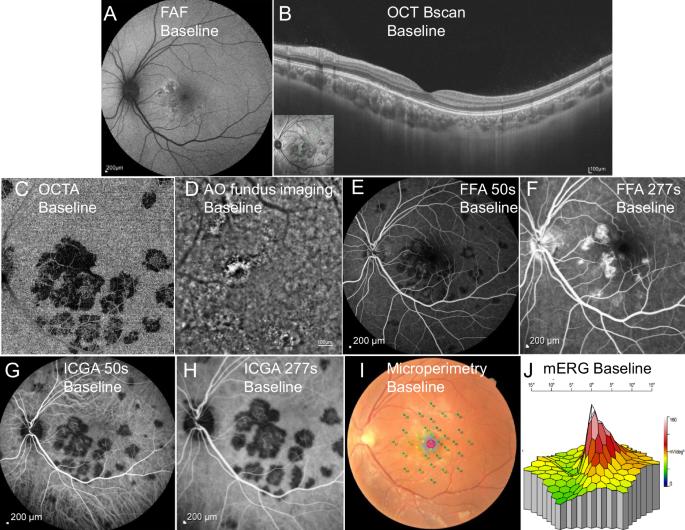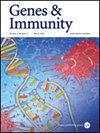scRNA测序揭示急性后部多灶性placoid色素上皮病的免疫致病反应景观。
IF 4.5
3区 医学
Q1 GENETICS & HEREDITY
引用次数: 0
摘要
急性后多灶性胎盘色素上皮病(APMPPE)是一种罕见的炎性疾病,影响脉络膜和视网膜色素上皮(RPE)细胞。尽管最近的研究表明APMPPE具有免疫驱动的性质,但其潜在的病因仍然难以捉摸。在这项研究中,我们使用单细胞RNA测序对APMPPE患者的外周血单核细胞(PBMCs)谱进行了全面的研究。我们的分析揭示了pmcs中单核细胞的显著转录改变,确定了五个不同的亚群:S100A12、CD16、促炎、巨核细胞样和nk样单核细胞亚群。采用伪时间推断,我们观察到APMPPE单核细胞向炎症相关的促炎单核细胞和CD16单核细胞分化的转变。此外,我们确定IFITM3在驱动APMPPE发病机制的免疫反应中起关键作用。值得注意的是,两个与疾病相关的单核细胞亚群,促炎单核细胞和CD16单核细胞,与APMPPE有关。特别是CD16单核细胞参与黑色素形成,这表明单核细胞中黑色素的异常表达可能是由于对富含色素的RPE细胞的自身免疫反应引起的。这项研究提供了APMPPE免疫景观的全面视图,揭示了以前未被认识到的促炎和CD16单核细胞对这种自身免疫性疾病的贡献。本文章由计算机程序翻译,如有差异,请以英文原文为准。

Immune pathogenic response landscape of acute posterior multifocal placoid pigment epitheliopathy revealed by scRNA sequencing
Acute posterior multifocal placoid pigment epitheliopathy (APMPPE) is an exceptionally rare inflammatory disorder affecting choroid and retinal pigment epithelial (RPE) cells. Although recent studies suggest an immune-driven nature, the underlying etiology of APMPPE remains elusive. In this study, we conducted a comprehensive investigation on the peripheral blood mononuclear cells (PBMCs) profile of an APMPPE patient using single-cell RNA sequencing. Our analysis revealed striking transcriptional alterations in monocytes within the PBMCs, identifying five distinct subpopulations: S100A12, CD16, pro-inflammatory, megakaryocyte-like, and NK-like monocyte subsets. Employing pseudotime inference, we observed a shift in APMPPE monocytes towards differentiation into inflammation-associated pro-inflammatory monocytes and a CD16 monocyte trajectory. Furthermore, we identified IFITM3 as a key player in the immune response driving the pathogenesis of APMPPE. Notably, two disease-relevant subgroups of monocytes, pro-inflammatory and CD16 monocytes, were implicated in APMPPE. CD16 monocytes, in particular, were involved in melanogenesis, suggesting that the abnormal expression of melanin in monocytes might result from autoimmune responses against pigment-enriched RPE cells. This study provided a comprehensive view of immune landscape in APMPPE, shedding light on the previously unrecognized contributions of pro-inflammatory and CD16 monocytes to this autoimmune condition.
求助全文
通过发布文献求助,成功后即可免费获取论文全文。
去求助
来源期刊

Genes and immunity
医学-免疫学
CiteScore
8.90
自引率
4.00%
发文量
28
审稿时长
6-12 weeks
期刊介绍:
Genes & Immunity emphasizes studies investigating how genetic, genomic and functional variations affect immune cells and the immune system, and associated processes in the regulation of health and disease. It further highlights articles on the transcriptional and posttranslational control of gene products involved in signaling pathways regulating immune cells, and protective and destructive immune responses.
 求助内容:
求助内容: 应助结果提醒方式:
应助结果提醒方式:


